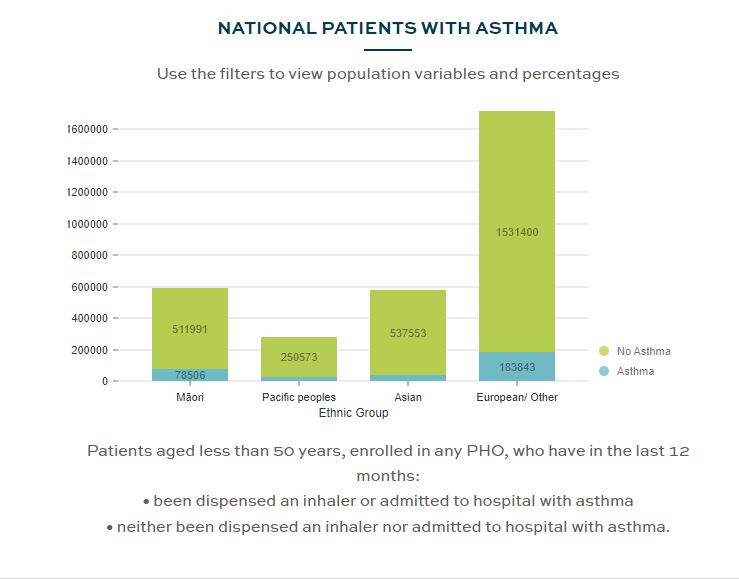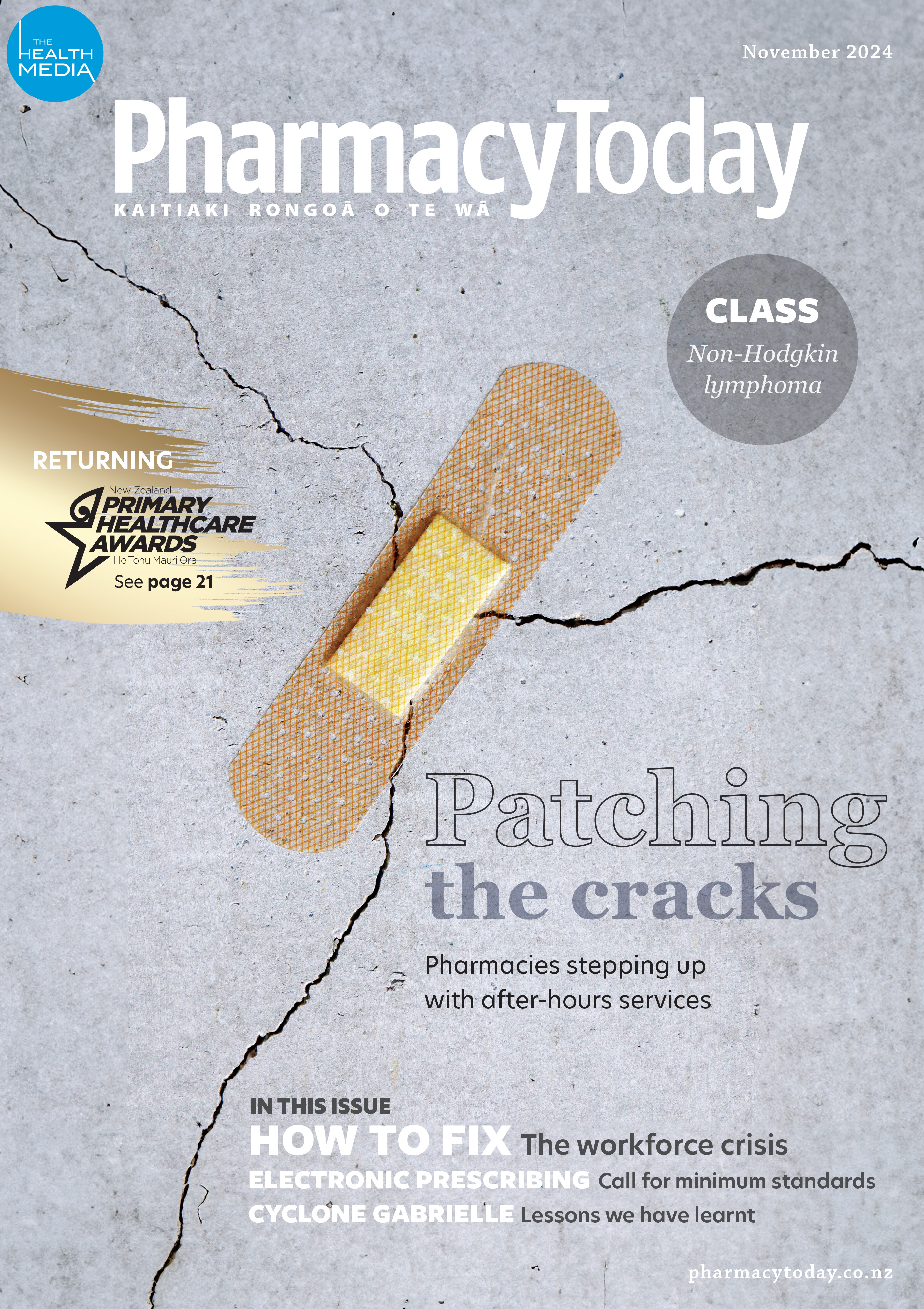Academic pharmacist Nataly Martini highlights the importance of understanding non-Hodgkin lymphoma and pharmacists’ roles in managing this condition
An EPiC story of asthma care in need of improvement
An EPiC story of asthma care in need of improvement

"If someone is using three or more canisters in a year, they are at increased risk of having severe exacerbations"
The latest EPiC dashboard launched by clinical education programme He Ako Hiringa mines national data to paint a picture of asthma management in primary care, and the picture reveals a number of problems.
Noni Richards is a health researcher with medicine analytics company Matui, creator of He Ako Hiringa. Dr Richards looked at data for 330,000 people under 50 who had been dispensed asthma inhalers in the 12 months to the end of June, or who had been admitted to hospital with asthma during the year. Some may have had another diagnosis, such as chronic obstructive pulmonary disease, post-COVID cough or another acute respiratory illness.
Māori and Pacific peoples were over-represented in the cohort at 23 per cent and 9 per cent respectively, when compared with their proportion of the total population (17 and 7.4 per cent respectively).
Dr Richards says she found 39 per cent of those aged 12 and over, who were dispensed short-acting beta-agonists (SABA) in the last 12 months, were given that alone, without maintenance treatment.
Ethnicity played a part; of the Pacific people who were dispensed SABA in the last 12 months, 55 per cent were given SABA alone, compared with 42 per cent of European or other ethnicities.
Dr Richards, co-developer of the EPiC Asthma dashboard and a pharmacist by profession, says she was surprised at the number of people who were not using a preventive medicine as part of their asthma treatment. That goes against the latest asthma guidelines, which recommend people start on inhaled corticosteroids, even if their condition is mild, she says.
“People often say they just want ‘the blue one’ [a symptom reliever],” Dr Richards says. That could be because it’s easier to see the immediate effect, whereas with longer-acting ones, “there’s an attitude of: ‘That doesn’t do anything, why would I bother?’”
But even people with mild asthma should have an inhaled corticosteroid, she says.
Education is needed so that people understand their asthma would be better controlled if they used a preventer, Dr Richards says. She suspects that, with COVID-19, this kind of advice may have “gone by the wayside”.
Another key finding of the research is 18 per cent of people had six or more SABA inhalers dispensed in a year. The figure for Māori, 20 per cent, is higher than for other ethnicities.
“That is quite a high number; if someone is using three or more canisters, they are at increased risk of having severe exacerbations,” says Dr Richards. Even allowing for people to have one inhaler in the car and another in their handbag, using up to three or more canisters in a year means asthma is poorly controlled.
A significant percentage (13.5 per cent) of Māori and Pacific people who were dispensed six or more SABA inhalers were given no maintenance therapy.
A media release from He Ako Hiringa says that, if the Asthma and Respiratory Foundation New Zealand guidelines were followed, the majority of patients aged 12 and over would be dispensed AIR/SMART therapy with budesonide/formoterol rather than inhaled corticosteroids (alone, or in combination with a LABA) and a SABA. “This is not what the data shows.”
Dr Richards says there is work to be done to ensure asthma is managed more effectively.
The foundation’s asthma guidelines were launched in 2020 and include a stepwise treatment pathway for asthma management in adolescents and adults.
The new He Ako Hiringa EPiC Asthma dashboard can help clinicians review the management of their patients with asthma against the guidelines.
Declaration of interest: The Health Media, publisher of New Zealand Doctor Rata Aotearoa and Pharmacy Today, is a 50 per cent shareholder in Matui Ltd, publisher of He Ako Hiringa
We're publishing this article as a FREE READ so it is FREE to read and EASY to share more widely. Please support us and the hard work of our journalists by clicking here and subscribing to our publication and website






